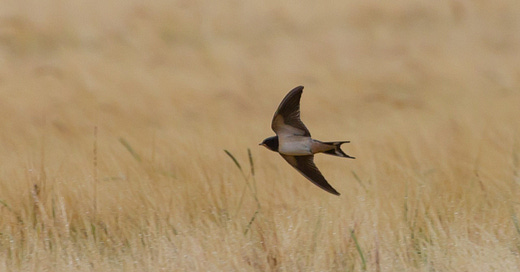I am having a good time digging into the new translation of the Odyssey by Daniel Mendelsohn, and something about it struck me funny.
It’s in Mendelsohn’s Note on Translation, always a great read for us literature and mythology nerds.
Here’s what struck me funny: Mendelsohn makes a point of translating the Greek phrase “winged words” as “like arrows.”
Okay. What’s weird about that? “Winged words” (in Greek, epea pteroenta) is an oft-used phrase in Homer, mostly for when one person in the story addresses someone else.
The Greek word usually translated as “winged” is pteroenta, which immediately makes me think of the word “pterodactyl,” one of the greatest dinosaur names (“wing-finger”) in the history of names.
Mendelsohn points out that pteroenta is “far more likely” to refer to the fletching of an arrow rather than the wings of a bird. “Fletching” has to do with the feathers at the non-pointy end of an arrow (the Greek word pteron means “feather;” in the plural it means “wing”). The word “fledgling,” a young bird just trying out his wings, is related to the word fletch. And the last name “Fletcher” is an occupation name that describes a person who makes arrows. All of that is in origin from the word “fly.”
So, according to this idea, when someone addresses someone else in Homeric poetry, they are sending words “like arrows” to another person.
Hmmm…. This seems a bit aggressive for every instance of this phrase. I mean, if you are mad at someone and a metaphor such as “his look shot daggers” makes sense, then I can see that translation.
But not if you’re just talking.
Here’s an example.
In Mendelsohn’s Book 1, when Telemachus, the son of Odysseus, who is a very level-headed and kind boy, addresses the stranger (the goddess Athena in disguise), he speaks to her with words “that flew toward her like arrows”.
You’re supposed to be nice to strangers in Greece, rather than shoot words at them. And of course that’s the point: the Odyssey is a lot about how to treat a stranger who visits your home and how strangers should treat the people whose homes they visit—what’s done and not done, so to speak.
Now Contrast Emily Wilson’s phrase at this same spot of the text:
He let his words fly out to her.
Simple, but this makes perfect sense to me. It preserves the metaphor of wings, and doesn’t muddy the waters by bringing into the translation a connotation of violence.
It also communicates the urgency and even the frustration that Telemachus feels as he confesses to this stranger about the 106 young men who have invaded his house to vie for the hand of his mother in marriage—people who are abusing the Greek custom of welcoming guests.
Repeated phrases in Homeric Greek can be translated the same way every time or not. Mendelsohn likes to preserve the original repetition, while Wilson does not.
In Book 2, Telemachus and the disguised Athena have another conversation, and she addresses him again with winged words. This time Wilson opts for this:
[Athena] spoke to him with words that flew like birds.
You’ve got that “fly” again, but now you’ve also got the wings. And the context is Athena encouraging Telemachus, so bringing in birds as a kind of lifting metaphor is appropriate.
So no, we’re not talking about arrows, so that’s not quite the most literal rendering, according to Mendelsohn.
But it’s a lovely touch, in my opinion.
A last note…
It’s curious that in his introduction, Mendelsohn quotes another critic as estimating that Wilson’s translation loses “a third of Homer’s text” because it is more concise in its rendering of the poem.
I don’t really know how it’s possible to be so precisely mathematical about a poem, but in my opinion it’s better to lose a third of Homer’s text than to have people throw the book across the room and not read it because the translator, in his zeal to preserve all of Homer’s text, has caused his reader to lose all of it.
The ancient Greeks who heard this poetry would’ve considered it a bit odd and archaic, which is an argument for making the English translation odd and archaic as well.
But the Greeks of old had an advantage when it came to odd and archaic poetry.
They did not live in a fast-paced world of constant visual content, both in letters and pictures. Their attention spans were longer, their ability to memorize much better.
Books compete today with a mountain of more easily digested stories. It’s a miracle that anyone reads any books anymore, given the billions and trillions of videos available to us now at the touch of a button.
In other words, if I haven’t already made it clear, I think Wilson’s concision is a feature rather than a bug. And no, I don’t think she loses a third of Homer’s text, either.
I hope you’ll read both versions and figure out the one you like best.




I visited Sicily 6 years ago, took the Frecciarossa ("Red Arrow") train from Naples to Reggio, and then a ferry between "Scylla and Charybdis".
The odyssey never ends!